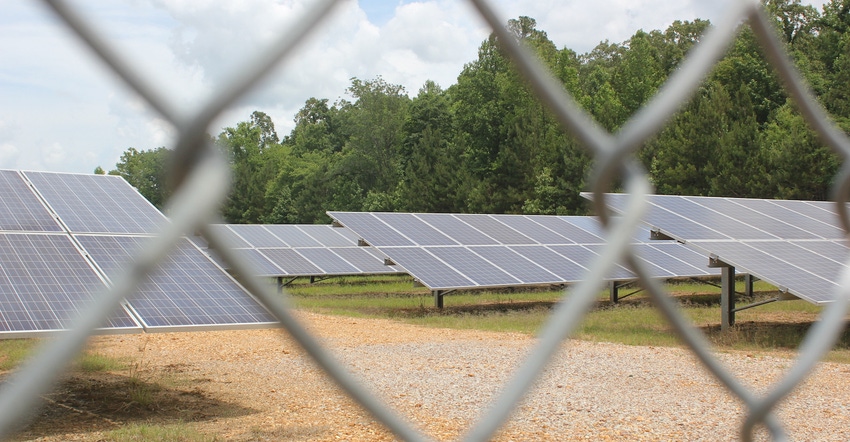
If you’re considering signing a solar lease contract, it’s important to be prepared. Farmers and solar energy professionals share points to consider before making a decision.
Be patient
The start to finish process for solar farm installation can take years. James Lee Adams said his deal with Southern Oaks Solar Project took 14 years to implement. Chuck and Chad Dacus were first approached about the solar project in their county nearly 10 years ago and solar panel installation has still not begun.
“Due diligence can take several years or more,” said Chris Norqual, COO of Birch Creek Development, a California-based solar company. “That involves working through utility studies to make sure the project can connect at that site.”
Once operational, most solar leases last for 30 years or more.
Get paid during transition
Some developers may not want to pay until the power is turned on. If you can continue farming your land during the due diligence phase, this may not be an issue. However, as solar projects move from the development phase to the operational phase your land may be tied up with construction and panel installation for up to 6-12 months, depending on the size of the project. Since your land will be out of agricultural production during that time, Adams suggests negotiating payment from the solar company during this transition period.
Know what’s included
The amount of money you can possibly get from your land has a wide range that’s based on a number of factors: location, number of acres, proximity to substation and what you are willing to accept. A point that should be clarified — will you be paid for all acres in the lease or just the acres where solar panels are located?
For example, the panels may only take up 60% of the property, with the remainder serving as buffer or easements. This could drastically reduce profitability of the lease.
Also, know the expectations for upkeep. Typically, companies maintain the property within the fenced panel area. The rest of the land may be the responsibility of the landowner but also subject to property use restrictions.
Negotiate rent increases and property taxes
Solar leases can seem extremely lucrative, but remember, these agreements will be in effect for decades. Be sure your contract provides for periodic rate increases.
Also, make sure the renters are paying the taxes. When an energy company constructs panels on noncommercial property there are potential costly tax implications for landowners.
“You may think you have a good deal, but it won’t be as good of a deal if you have a big tax increase,” Adams said.
Plan for restoration
Some states now require solar companies to have a decommissioning plan and provide a bond for restoration at the end of a lease. Be sure it is in your contract.
“In 30 years, whoever is left with the land could have a big cleanup job if there are not stipulations in the contract for restoration,” said Dacus.
Returning the land to a condition suitable for growing crops will be expensive. A farmer should insist the developer provide some form of security that will pay for the cost of removal if the solar company goes bankrupt or disappears. This is a must.
Of course, these are not the only considerations, but a starting point to guide the process. Take time to discuss any contract with your attorney.
About the Author(s)
You May Also Like






